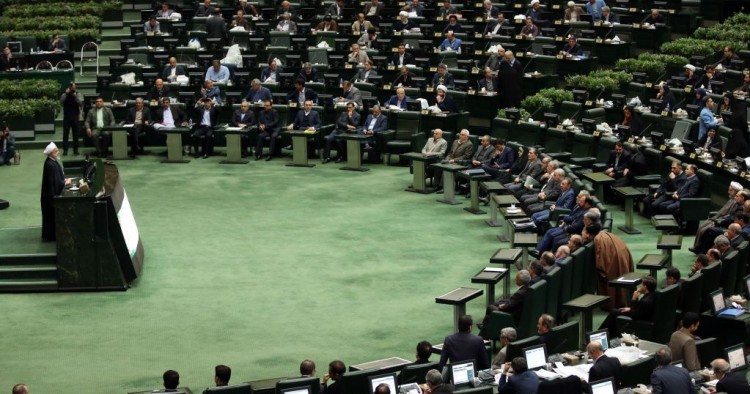This week, Iran’s new Parliament will start work. Now 40 years old, the Majlis is more irrelevant than ever. The 290-member body has over the decades evolved to become nothing but a rubber stump, acting as a prop for the wishes of the unelected supreme leader, Ayatollah Ali Khamenei. Back in February, when Iran held elections for the incoming Majlis, Khamenei made sure that only those loyal to him and his political agenda were allowed to run.
Prominent outgoing parliamentarians, such as Ali Motahari, Mahmoud Sadeghi, and Hesmatollah Falahatpisheh, took parting shots at the body’s powerlessness. Each in a roundabout way hinted at what no one dares to say openly: Khamenei has de facto control over who can sit in the Majlis and what legislation they can pass. In today’s Islamic Republic, to criticize Khamenei’s political control is to ask to be arrested and imprisoned. This reality is the mother of all obstacles to gradual political change in the country, but it hasn’t stopped Khamenei from continuing to use the Majlis as window dressing. He has two key demands from the next Majlis. First, he wants far more overt reverence be shown to him by the deputies given how fond he is of adulation. At nearly 81, he is busy engineering the shape of his own public memory in the years to come.
Second, he wants the next Parliament to embarrass and undermine the government of Hassan Rouhani as much as possible before its term ends in 15 months’ time. President Rouhani is anticipating exactly this, which is why he and his inner circle are urging the next Majlis not to seek an open confrontation. And yet, while Khamenei will be happy to see the Rouhani government’s reputation tarnished, he will not want there to be any moves toward impeaching the president. That would make Rouhani into some kind of a political martyr, which does not fit Khamenei’s plans. Instead, the supreme leader’s aim is destroy, as much possible, the reputation of the so-called “moderate” camp in the country while Rouhani’s government overlaps with the new hardline Majlis. By doing so, he can set the stage to engineer the election of a hardline president in 2021, as he did with Mahmoud Ahmadinejad in 2005. In Khamenei’s mind, the total neutralization of the “moderate” camp in the Islamic Republic is the best legacy he can leave behind. He wants this new Majlis to help him in that quest.
Alex Vatanka is a Senior Fellow and the Director of MEI's Iran Program. The views expressed in this piece are his own.
Photo by STR/AFP via Getty Images
The Middle East Institute (MEI) is an independent, non-partisan, non-for-profit, educational organization. It does not engage in advocacy and its scholars’ opinions are their own. MEI welcomes financial donations, but retains sole editorial control over its work and its publications reflect only the authors’ views. For a listing of MEI donors, please click here.













